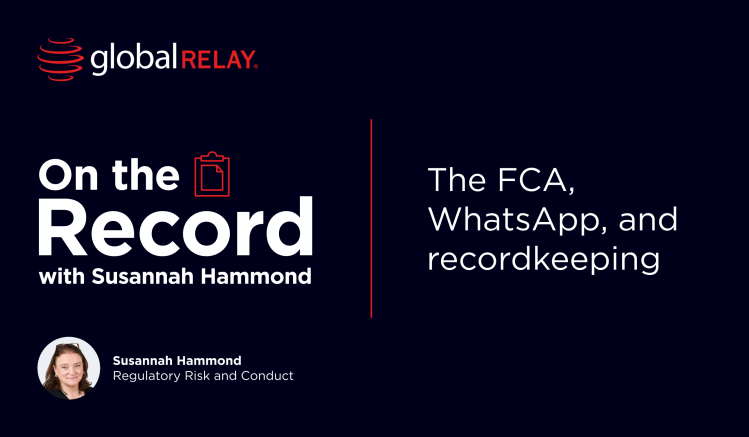While we’re familiar with ‘crypto’ as the accepted shortening of ‘cryptocurrency’, the roots of the term are much older. The ancient Greek ‘kryptos’ means ‘hidden’ – something firms may wish their marketing efforts had been, given the Financial Conduct Authority (FCA)’s recent scrutiny of how crypto promotions are measuring up against regulations – and falling short.
Back (end) story
On August 7, 2024, the FCA published a review of ‘good and poor practice’ regarding how crypto firms are meeting the requirements of PS23/6 – Financial promotion rules for cryptoassets. Following the implementation of ‘back-end rules’ in January, 2024 (delayed from October, 2023), the FCA has “reviewed a sample of crypto firms’ compliance.” The regulator notes that firms may still have been adjusting to the new requirements, however:
“There were instances where firms were not meeting the required standards and expected level of consumer protection, so we have worked extensively with firms to remedy their compliance failures. Some firms still needed to make significant improvements to reach the levels of compliance we have seen in other sectors.”
The review emphasizes that the FCA has provided firms with “detailed feedback,” and will continue to work with those that fell below the standard to help them meet it. It also reaffirms the regulatory rationale behind the marketing rules, as well as their importance:
“These rules are important for preventing harm to consumers. They help ensure that consumers understand the risks of purchasing crypto, and can absorb potential losses, before they decide to invest. They can, in turn, help to support the integrity of our financial system and build confidence in the UK crypto market.”
PS23/6 aims to raise the overall standard of crypto promotions and marketing by making sure that:
- Consumers receive clear, high-quality information to enable them to understand the features and risks of products
- Consumers have time to consider and reflect on this information
- Cryptoassets are only sold to consumers they are appropriate for, including consumers’ ability to absorb potential losses
A little bit of history repeating
This is not the first time the FCA has fired off a warning shot on this topic. Back in October, 2023, the regulator published a warning around its pending change in legislation, which outlined three common issues with crypto firms’ financial promotions. These included:
- Promotions making claims about the ‘safety’, ‘security’ or ease of using cryptoasset services without highlighting the risk involved
- Risk warnings not being visible enough due to small fonts, hard-to-read coloring or non-prominent positioning
- Firms failing to provide customers with adequate information on the risks associated to specific products being promoted
The final point shows that firms failing to provide customers with all the information required on the potential risks of crypto is a longstanding issue – one that this latest review highlights has yet to be resolved.
The initial warning set out the FCA’s expectations of firms, and the lengths the regulator will go to in order to protect the market and ensure compliance:
“We expect authorized firms approving the financial promotions of cryptoasset firms to take their regulatory obligations seriously. Where this is not happening, we are working with businesses including social media platforms, app stores, search engines and domain name registrars to remove or block illegal promotions … in the case of non-compliance, we will take robust action to remove illegal content to protect consumers.”
However, the FCA also outlined that it would take a cooperative approach with firms evidencing that they were working to reach the new standards set out in PS23/6:
“Where firms are engaging with the FCA in good faith with a view toward achieving compliance we are taking a proportionate approach to implementation.”
Interestingly, the FCA’s crypto rules share aims with the regulator’s Consumer Duty, primarily minimizing risk of harm to investors, with firms looking to promote their crypto products obligated to:
“Ensure that people have the appropriate knowledge and experience to invest in crypto. Those promoting crypto must also put in place clear risk warnings and ensure adverts are clear, fair and not misleading.”
When discussing the new crypto rules, Sheldon Mills, Executive Director, Consumers and Competition at the FCA, highlighted the need for these rules to protect consumers, and the importance that firms enable them to make an “informed choice” in their investments:
“’It is up to people to decide whether they buy crypto. But research shows many regret making a hasty decision. Our rules give people the time and the right risk warnings to make an informed choice. Consumers should still be aware that crypto remains largely unregulated and high risk. Those who invest should be prepared to lose all their money.”
The regulators vs. crypto marketing
Coming into force on 31 July, 2024, the FCA’s Consumer Duty was established to enshrine consistently high standards of consumer protection throughout financial services. The duty makes this plain, urging firms to ask “is this product or service designed to deliver good outcomes for consumers?” as their starting point. The duty also requires that firms “ensure their communications support customer understanding of their products and services” – something that has been found lacking in the FCA’s review of crypto marketing.
We have seen a wider regulatory shift towards rules governing marketing and promotions that prioritize consumer safety. The Securities and Exchange Commission (SEC)’s Marketing Rule prohibits several practices, such as “including information that is … materially misleading”, utilizing testimonials or endorsements in adverts, and featuring hypothetical performance. These inclusions are designed to “allow advisers to provide investors with useful information” in order for them to make more informed decisions.
The Financial Industry Regulatory Authority (FINRA) has also tangled with crypto marketing. In February, 2024, FINRA released findings from a review of more than 500 cryptoasset-related retail communications distributed by member firms. It aimed to assess whether “the marketing material, blog posts, and other publicly distributed information” violated FINRA rule 2210, which governs how firms can communicate with the public. FINRA found evidence of:
- False statements or implications that cryptoassets functioned like cash or cash equivalent instruments
- Other false or misleading statements or claims regarding cryptoassets
- Comparisons of cryptoassets to other assets (e.g., stock investments or cash) without providing a sound basis to compare the varying features and risks of these investments
- Unclear and misleading explanations of how cryptoassets work and their core features and risks
- Failure to provide a sound basis to evaluate cryptoassets by omitting clear explanations of how cryptoassets are issued, held, transferred, or sold
Concerningly, the regulator found “potential violations in 70% of the … communications about crypto.” Although this was attributed to “a handful” of the examined firms, it is still a worrying high percentage given the potential impacts of high-risk products like crypto on unwary investors. Much like the FCA’s review, FINRA included guidance for firms in the form of questions to ask to establish whether their crypto marketing is compliant.
(Don’t) go compare
The FCA’s review and subsequent guidance recognize that these ‘teething problems’ with some firm’s marketing operations may be the result of organizations still establishing how to meet the new crypto requirements:
“We recognize this is the first set of rules for all crypto firms marketing to UK consumers and adjusting to new regulation can be challenging.”
However, the guidance identifies an issue where firms have been looking ‘over the garden fence’ at competitor’s marketing and communications to gauge whether their own are meeting the standard – which is problematic, as it results in firms looking to one another rather than to regulation:
“We have seen firms relying on industry comparisons to benchmark what is acceptable. Given the levels of poor practice in the market, firms should not be doing this. Instead, we expect firms to engage with us directly to drive up standards across the sector.”
The FCA has set clear expectations around the implementation of the new rules, and the recent guidance only reinforces these, as well as the need for firms to take crypto compliance seriously:
“All firms communicating or approving financial promotions must make sure they have strong systems and controls for compliance in place.”
While the FCA has taken an understanding tone in acknowledging that firms may have taken time to adjust to the new rules, sharing substantial guidance, and encouraging firms to cooperate and work with them directly, the final message is crystal clear – for firms with non-compliant crypto comms, there’s nowhere to hide:
“If firms do not improve, we will act.”




